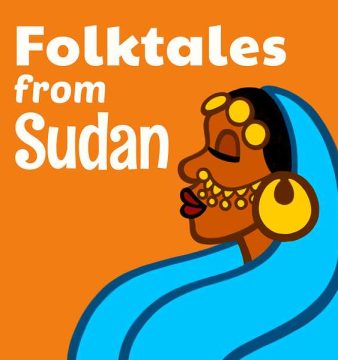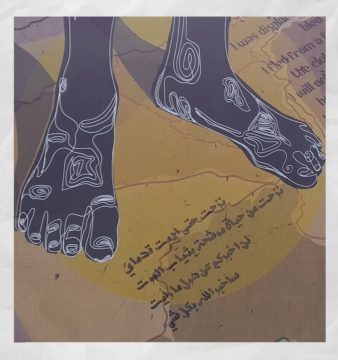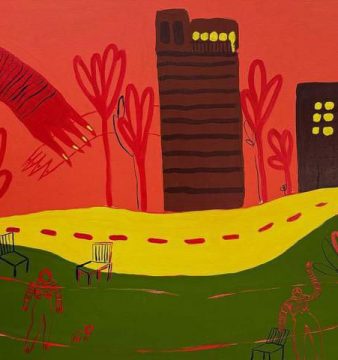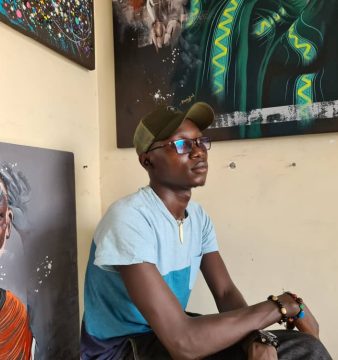The Derik Cultural Festival 2023 Embraces Diversity
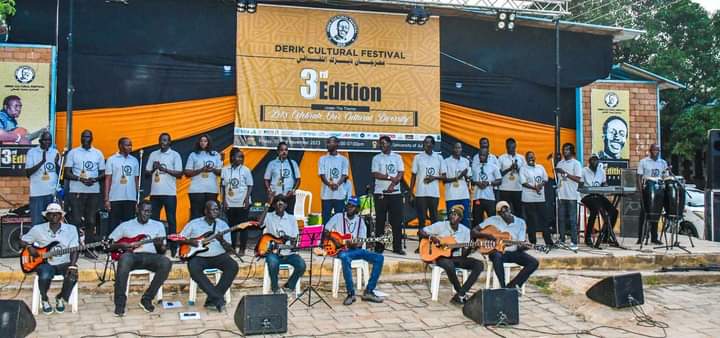
Culture is what makes a place or people unique. In a world full of different cultures and arts, we prove our existence by performing what represents us. ‘Let’s celebrate our cultural diversity’ was the slogan of the 3rd edition of Derik Cultural Festival (DCF), which took place in Juba, South Sudan from 10 to 18 November 2023 at the University of Juba, bringing out people from diverse communities and cultures all in one united in music and love for the late national icon Derik Alfred Uya. For eight days, the dream of having a peaceful country is realised – people healed from the wounds of conflicts, displacement and tribalism.
DCF is not only a musical festival, but a small village of intellectual minds and changemakers, collaborating to spread the peaceful message of social coexistence and cohesion between the people of the young nation, South Sudan. Established in 2021, the first edition of DCF presented a series of lectures and papers written by Uya. After the first edition, the founders, who are a group of intellectual people, including writers such as Boie John and Atem Simon, felt that there is a necessity to continue with Uya’s work, legacy, and vision because the cultural movement for Uya was a lifetime project.
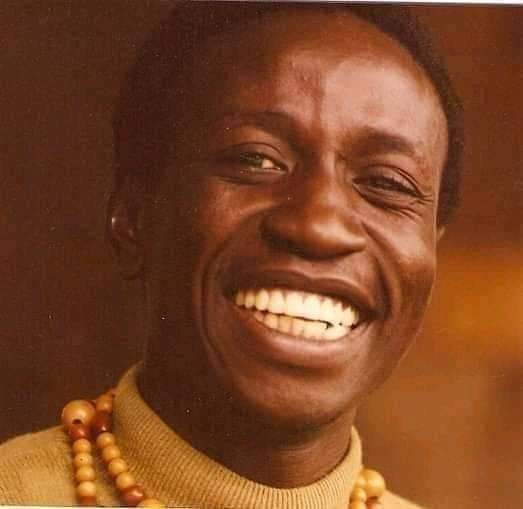
Uya is a South Sudanese national icon born in Wau Bahr Ek Ghazal region in January 1962, and passed away in Khartoum, Sudan in October 2021. Uya accomplished many things throughout his lifetime. Uya graduated from the College of Music and Drama in Sudan University with a diploma in acting and directing. He was co-founder and director of Kwoto Centre, which made a significant impact in the lives of the talented South Sudanese youth in Khartoum in the early 90s. They learned about their identities, and developed their knowledge of their hometown, cultures and languages, which strengthened their ideology of what the Islamic-Arabian political regime in Sudan was trying to enforce on them.
Themes of identity and belonging are heavily reflected in Uya’s work, whether in theatre, music, or a lecture. ‘He was a director, actor and musician. He played the guitar and drums and was also a translator and journalist. He was a member of the Union of Sudanese Writers and he was also a secretary at the union. After the independence of South Sudan, Uya was appointed as the Minister of Culture in Bahr El Gazal state from 2013 to 2015. He is also a founder of Bahr El Gazal Cultural Festival,’ said Boie John a co-founder at DCF and one of the organising committee members.
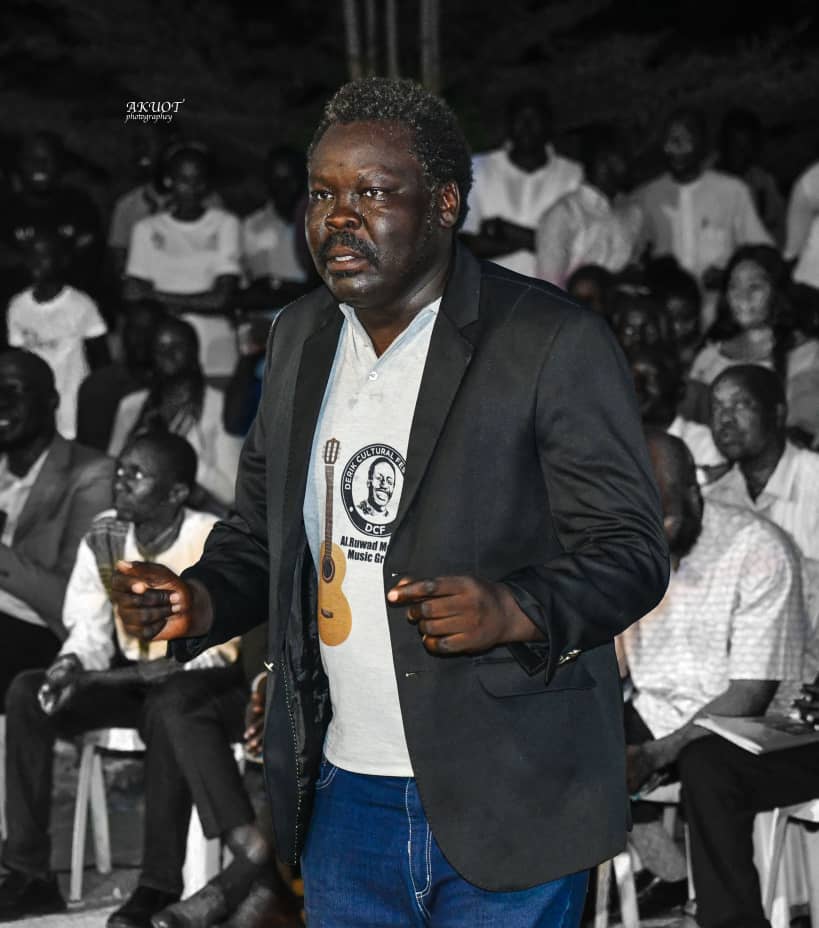
The seven days of the event were energetic, informative and artistic at the same time. Papers were presented in the first days, with topics such as national identity as well as language in South Sudan by Professor Bul Deng Chol. South Sudan is home to 64 ethnic groups and finding a common language is still an issue, in addition to Arabic and English. On the following days, the big show began, where music bands and musicians entertained audiences, including a performance by Al Ruwad Music Band, which was founded by Uya himself. They were the stars of the event.
People were singing in several languages – some not understood by all – and moving their waist to marvellous jazz music. The music continued with nostalgic rhythms and the songs, featuring many romance songs, most of which were named after their loved ones like Sara, Kaji and Magdalene. The audience chanted for the songs to be replayed. ‘The songs were sung in different languages of the Sudanese nation. We, as new people in this country, have enjoyed this festival. Accepting our diversity is the key toward the development of our countries,’ said Amna Adarhman Bargu, one of the attendees.
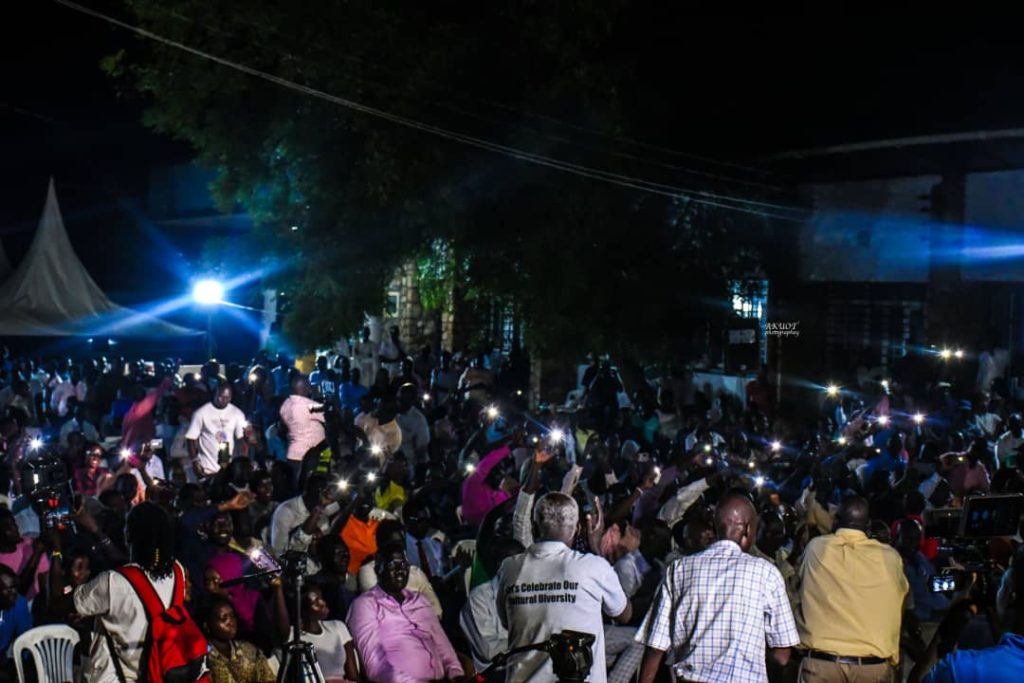
The diversity in the audience was not only within the South Sudanese community, but also the Sudanese. Hadiya Mahdi Ali Kalol, a Sudanese filmmaker and director, participated in the ongoing bazaar at the festival as cosmetic specialist doing facial sessions for men and women. Reem Abbas, recently came to Juba for the first time after fleeing war in Sudan. Both of them said that they are feeling home, safe and sound. Abbas also sold cosmetic products at the bazaar. ‘I feel home. I feel like I am attending this festival in Khartoum. The same energy and vibe, meeting friends and enjoying time, is all the same here,’ she said.
Every edition of the DCF, the committee award a person with ‘The Person of the Festival’. This year, the award went to Emmanuel Mark Kembe, a South Sudanese singer who sings for peace, love and unity. On the seventh and eighth day of the festival, Kembe and his musician band Lwanga performed a masterpiece. Kembe is a much loved singer in South Sudan and he many fans. His songs are touching and relatable to many. The committee is looking forward to award the next Person of the Festival in the four editions of the festival. By doing so, they are celebrating the journey of the outstanding people who have their fingerprint on the society.
Although the DCF is not fully funded by any entity, it is a collaboration between many institutions who are concerned about Uya’s legacy.
The organising committee is aiming for bigger plans. ‘We don’t want to centralise this festival or the cultural movement in the country. That’s why we want to enhance the work of the other cultural entities outside Juba like Wau and elsewhere,’ said Atem Simon, chairman of the DCF organising committee and co-founder of DCF. The committee has a long-term goal of establishing a cultural centre. Walking in Uya’s footsteps, the founders wish that the community and government would stand on one side and give out a helping hand to support the artists and talented people of the country by creating cultural institutions and opportunities to reflect the beauty of South Sudanese music and culture to the outside world.
__________________________________________________________________________________________________
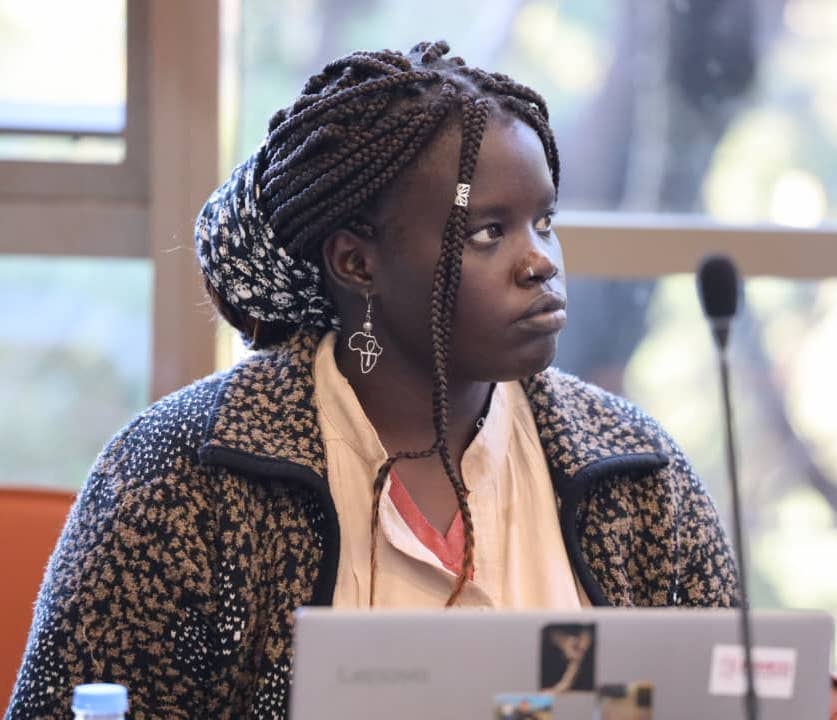
Dominica Amet Joseph Marco is a 26-year-old South Sudanese writer, freelance journalist and feminist/social activist who graduated from the faculty of law from the University of Bahri in 2018. She is one of many who had to flee war in Sudan to finally come and live in her homeland South Sudan. She has written and published articles, stories and poems since 2017. She has worked with and published articles in Aka’bar Alwatan Newspaper in Sudan, Almugif Newspaper in South Sudan, and several other Arabic websites.

